Who are the main players in the battle to retake Mosul from the Islamic State?
As the assault on the city has begun, convoys of Iraqi, Kurdish and US forces moved east of Mosul.
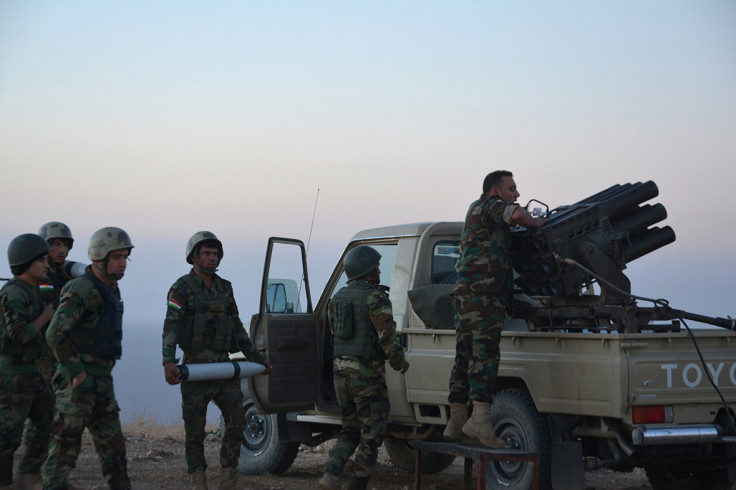
The Iraqi government, supported by a coalition of fragmented and, in some cases, competing fighting forces, has announced a start to the battle to retake Mosul, the Islamic State's largest stronghold in the country, a complicated Sunni majority city of 1.2 million.
As the assault on the city has begun, convoys of Iraqi, Kurdish and US forces moved east of Mosul along the front line early on Monday 17 October. US-led airstrikes sent plumes of smoke into the air and heavy artillery rounds rumbled in the distance, the Associated Press reported.
Mosul has been held by the Islamic State (Isis) since the summer of 2014 when its forces made a rapid incursion into the city from neighbouring Syria. Abu Bakr al-Baghdadi, the leader of Isis, travelled to Mosul to declare his so-called caliphate. With Raqqa in Syria Isis's capital, Mosul becames its religious and spiritual home.
The operation to liberate Mosul is the largest military operation in Iraq since 2011 and the withdrawal of the majority of US ground forces. If it is successful, the defeat will be the worst suffered by Isis in its two-year history.
However, the operation to retake the city is fraught, not just because of defences put in place by Isis but also as a result of the complicated ethnic and religious makeup of the city and the patchwork of forces which may clash with inhabitants as they enter Mosul.
Iraqi forces have been massing the city in recent days, including elite Special Forces that are expected to lead the charge, as well as Kurdish forces, Sunni tribal fighters, federal police and state-sanctioned Shia militias.
Particular concerns have been raised over the involvement of Shia militias in the liberation of the majority Sunni city. As the assault from five directions began, Iraqi Prime Minister Prime Minister Haider al-Abadi said only Iraqi government forces would be involved in the liberation because of the sectarian tensions which could be ignited by the involvement of other groups.
These are the main players now involved in the liberation of Mosul as the attack begins:
The Islamic State
Isis is estimated to have between 3,500 and 5,000 fighters in Mosul, with supporters bringing the total to 7,000. The jihadists have suffered serious setbacks since January 2015, when it was at the peak of its power. Since then, it has lost 28% of the territory it once controlled, according to security and defence analysts IHS.
The battle to reclaim Mosul and effectively flush the terror group out from Iraq is expected to last weeks, if not months. Isis is expected to fight back using booby traps and improvised explosive devices.
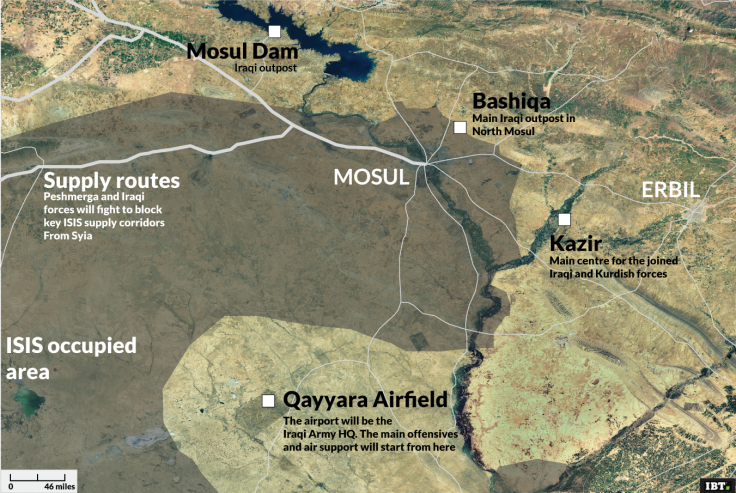
The Iraqi Army and Police
The Iraqi army and national police are to make up the largest part of the fighting force which will take on Isis in Mosul. The are pushing up predominantly from the south of the city with units are based for the most part at the sprawling Qayara air base. To the east of the city, Iraqi forces are camped out in abandoned homes. In the recent weeks of fighting the tens of thousands of troops massed around the city have overwhelmed the few military bases in the area.
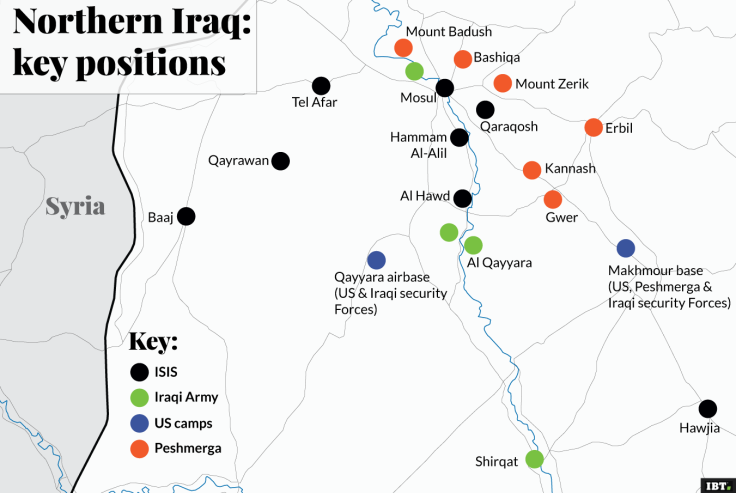
The Peshmerga
Kurdish forces are stationed to the north and east of Mosul but their commanders have said they will not enter the city because of "sectarian sensitivities". Lt Col Amozhgar Taher with the Peshmerga, told the Associated Press his men would only move to retake a cluster of mostly Christian and Shabak villages to the east of Mosul.
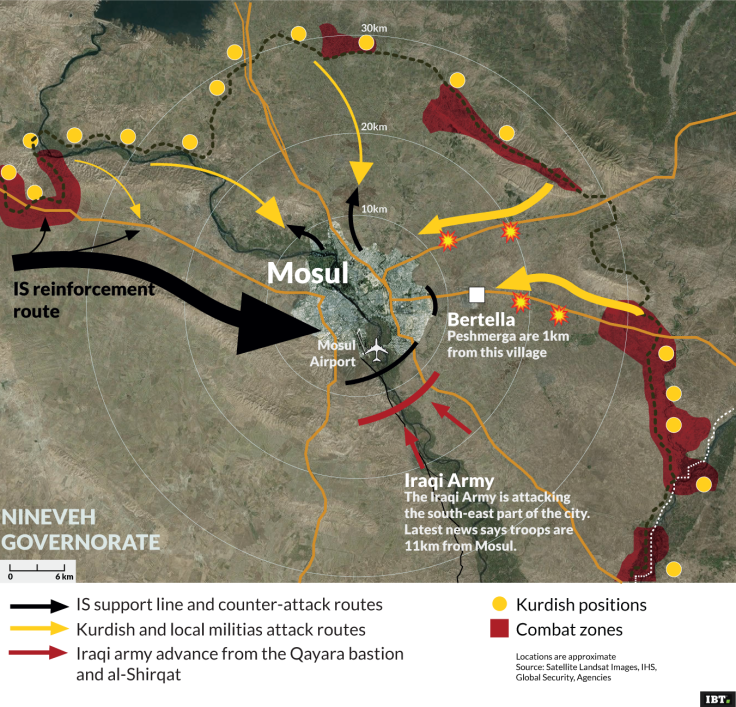
Turkish-backed Iraqi troops
Some 3,000 Iraqi forces trained by Turkey are based the Bashiqa camp in northern Iraq and will take part in the operation. Ankara and Baghdad have been locked in a war of words over the participation of the Turkish-backed troops. Reuters reported the force was comprised Shia, Yazidis and Christians as well as Sunni Turkmen fighters.
Shia Militias (Popular Mobilisation Forces)
Fears have been raised over the possible role Shia militias backed by Iran will play in the liberation of Mosul. The fighting groups, which were incorporated into the Iraqi military after they emerged in 2014 as reaction to the expansion of Isis, have been accused of committing human-rights atrocities in Fallujah while carrying out reprisals against the Sunni population in the last bastion of Isis power to fall to the US-backed coalition.
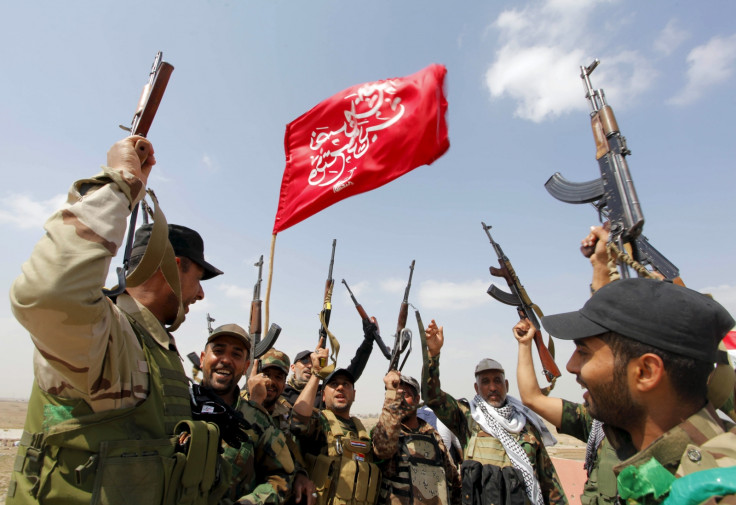
© Copyright IBTimes 2024. All rights reserved.







